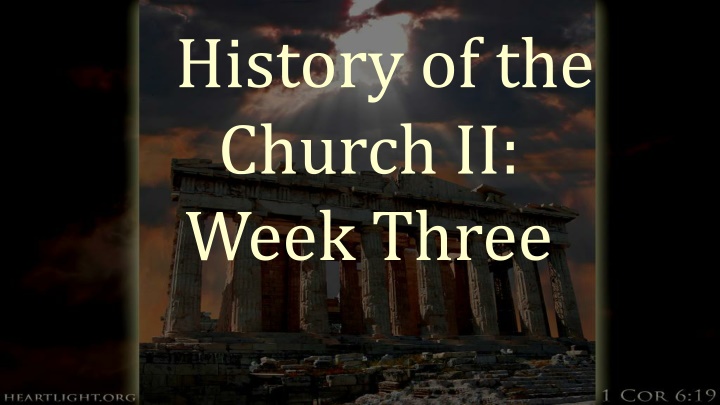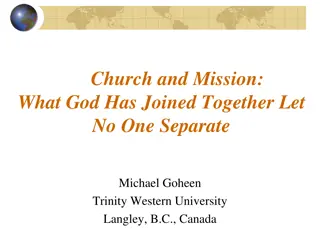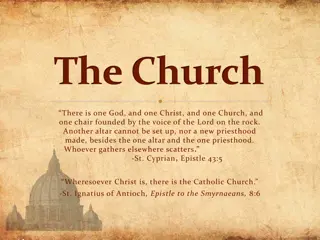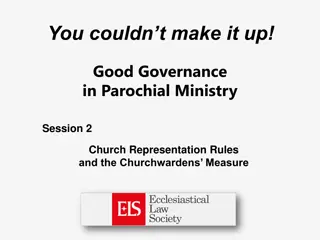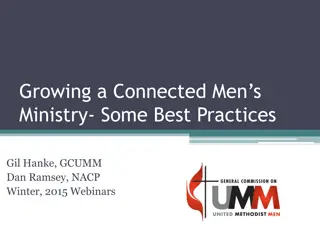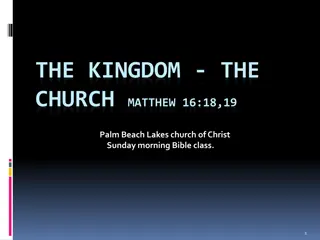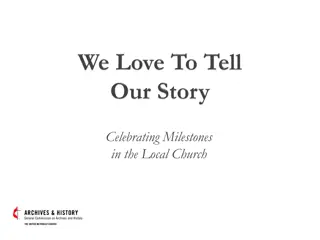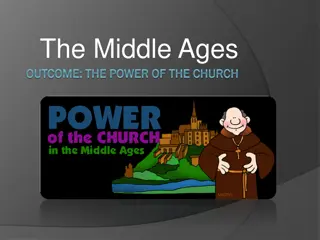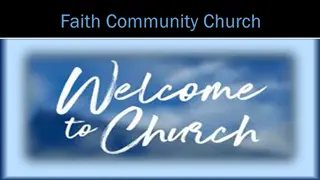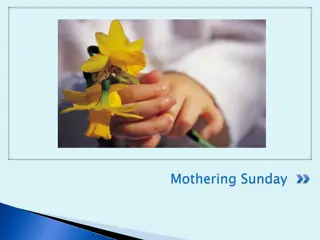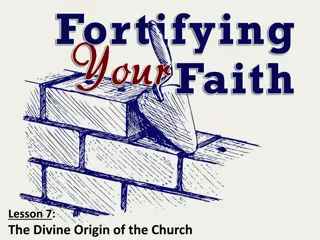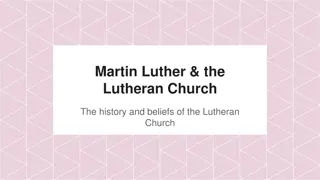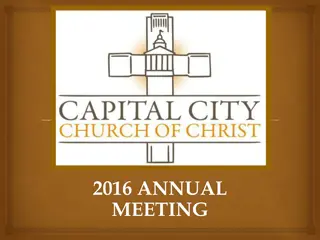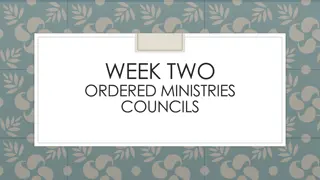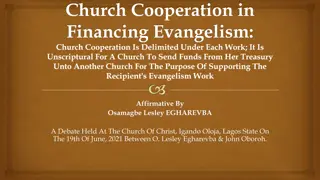History of the Church II: Week Three
Born in 1509 in France, John Calvin played a significant role in shaping Protestant theology. He wrote The Institutes of the Christian Religion, emphasizing sanctification as the work of the Holy Spirit. Calvin's ideas focused on staying true to the Word of God and not exceeding its boundaries. His early life as a Catholic transformed after encountering the teachings of humanism and Protestant reformers. Calvin's written works provided a coherent framework for Protestant beliefs, influencing the trajectory of the Church.
Download Presentation

Please find below an Image/Link to download the presentation.
The content on the website is provided AS IS for your information and personal use only. It may not be sold, licensed, or shared on other websites without obtaining consent from the author.If you encounter any issues during the download, it is possible that the publisher has removed the file from their server.
You are allowed to download the files provided on this website for personal or commercial use, subject to the condition that they are used lawfully. All files are the property of their respective owners.
The content on the website is provided AS IS for your information and personal use only. It may not be sold, licensed, or shared on other websites without obtaining consent from the author.
E N D
Presentation Transcript
History of the Church II: Week Three
John Calvin Read story page 256 in Church History
Calvins Ideas on Theology Let us be aware lest our words and thoughts go beyond what the Word of God tells us We must leave to God His own knowledge, and conceive Him as He makes Himself known to us, without attempting to discover anything about His nature apart from His Word. - John Calvin
Importance of Calvin Luther was the trailblazer, Calvin was the careful thinker who brought the Protestant doctrines into a cohesive whole. He was known for his doctrine of sanctification through his series of written works called the Institutes of the Christian Religion. Sanctification: involves more than a mere moral reformation of character, brought about by the power of the truth: it is the work of the Holy Spirit bringing the whole nature more and more under the influences of the new gracious principles implanted in the soul in regeneration. In other words, sanctification is the carrying on to perfection the work begun in regeneration, and it extends to the whole man ( Romans 6:13 ; 2 Cor. 4:6 ; Colossians 3:10 ; 1 John 4:7 ; 1 Corinthians 6:19 ).
Early Life Born in Noyon, France in 1509. His dad helped him secure two ecclesiastical posts to help him pay his way through the university. Ecclesiastical posts: Jobs in the church which were paid by the government with taxpayer money. Studied in Paris where he came into contact with humanism along with the teachings of Wycliffe, Huss and Luther.
Early Life At first, he was Catholic. ( I was stubbornly tied to the superstitions of the Papacy. ) After his dad had a falling out with the bishop, Calvin was encouraged to study law. When his dad died, Calvin returned to Paris to finish his theology. At this time in his life, Calvin made the decision to leave the Catholic Church. When Francis I of France began to persecute Protestants, Calvin left to go to Basel, Switzerland where he published his first treatise.
The Institutes Up until this time all written Protestant literature had been in response to problems the movement had with the Catholic Church. When Calvin wrote his first edition of The Institutes in 1536 it filled out what Protestants believed on a wide range of topics. 516 pages but yet small enough to fit into the coat pockets of university students, The Institutes sold out of its first edition in Latin. From there Calvin added to his work when he had the time to write. One volume would come out in French then the next in Latin until the last one was written in 1560.
The Reformer in Geneva Geneva, which had been transformed when missionaries from nearby Bern led by William Farel turned the city to Protestantism, was the first experiment of a secular government ran by the Protestant movement. For the next 25 years, Geneva and Calvin had a love/hate relationship. The first disagreement came when the upper class, with the backing of Catholic agitators who circulated rumors about the errors of Protestant doctrine, did not want members excommunicated. Calvin believed unrepentant sinners should be excommunicated.
The Reformer in Geneva When Calvin refused to back down, Geneva banned him from the city. During his three year exile, Calvin was able to write, interact with Martin Bucer who became his mentor and marry. In 1541, Calvin returned to Geneva and wrote the Ecclesiastical Ordinances. The Ordinances organized the ministry of the church into four orders: pastors, teachers, elders and deacons.
The Reformer in Geneva Pastors: were in charge of the ministry of the Word and the sacraments. Teachers: also called doctors were responsible for the education of the community including the children. Elders: supervised the religious life of the community admonishing those who sinned and reporting them to the Consistory. Deacons: in charge of the social services of the church. Consistory: 12 lay elders and 5 pastors who oversaw the community.
Calvins Legacy After the deaths of Luther and Calvin, Protestants were split over issues which frankly should not have divided them. Lutherans and Reformers (Calvin s followers) clashed over communion. The Inquisition further divided Christendom. Calvin s supporters went to the Netherlands, England, Scotland and France. The Puritans were an off-shoot of Calvin and his followers became known for reforming society.
